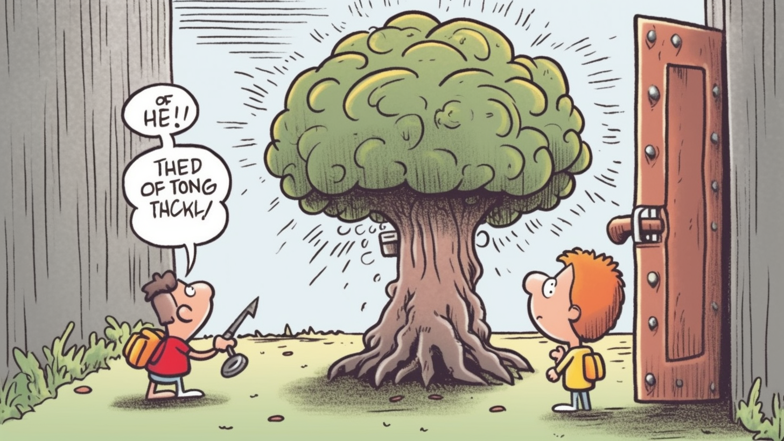
Developed by Stanford psychologist Carol Dweck, a growth mindset is the belief that one's abilities and talents can be developed through hard work, dedication, and persistence. This stands in contrast to a fixed mindset, where one believes that their abilities and talents are predetermined and cannot be changed. A growth mindset encourages individuals to embrace challenges, persist through obstacles, and ultimately be successful in their pursuits.
The implications of a growth mindset stretch far beyond personal growth and achievement. In fact, a growth mindset has been linked to academic success, career advancement, and even improved relationships. Research has shown that individuals with a growth mindset are more likely to take on challenging tasks, seek feedback, and persevere through difficult situations. This ultimately leads to a fulfilled life, both personally and professionally.
So, how can individuals develop a growth mindset? First and foremost, it's important to understand the difference between a fixed and growth mindset. A fixed mindset is characterized by a belief that one's abilities are predetermined and cannot be changed. This belief can lead to self-limiting behaviors, such as avoiding challenges and giving up quickly when faced with adversity. On the other hand, a growth mindset is characterized by a belief that one's abilities can be developed through hard work and dedication. This belief leads to a focus on growth, learning, and improvement.
One way to develop a growth mindset is to embrace challenges. Rather than shying away from difficult tasks, individuals with a growth mindset see challenges as opportunities for growth and learning. They understand that failure is a necessary part of the learning process and are willing to take risks in order to learn and improve. This can be applied to both personal and professional pursuits.
Another way to develop a growth mindset is to seek feedback. Individuals with a growth mindset view feedback as a valuable tool for learning and improvement. Rather than feeling defensive or embarrassed when receiving feedback, they see it as an opportunity to learn and grow. This can be applied to everything from career performance reviews to personal relationships. Seeking feedback allows individuals to gain a fresh perspective, identify areas for improvement, and ultimately develop their skills and abilities.
It's also important to avoid negative self-talk and embrace a positive mindset. Individuals with a growth mindset focus on their strengths and potential rather than their shortcomings. This allows them to approach challenges with a sense of optimism and possibility, rather than feeling defeated before they even begin. By adopting a positive mindset, individuals can overcome self-limiting beliefs and achieve their goals.
Developing a growth mindset can be a lifelong process, but the benefits are well worth the effort. By embracing challenges, seeking feedback, and maintaining a positive outlook, individuals can unlock their full potential and achieve their goals. However, it's important to remember that developing a growth mindset is not a one-size-fits-all approach. Different strategies may work better for different individuals, and it's important to experiment with different techniques in order to find what works best.
In the realm of education, the concept of the growth mindset has been embraced by educators worldwide. Students are encouraged to embrace challenges, learn from mistakes and try new approaches. In teaching the growth mindset, students develop critical thinking skills, perseverance, and the drive to succeed. These skills readily translate to life after school as they grapple with real-world problems. Educators help students develop a growth mindset by providing constructive criticism and fostering a "can-do' spirit. Teachers encourage academic development and foster a desire for personal growth in students.
In the professional realm, the growth mindset is just as valuable. Employers who embrace the concept of the growth mindset are more likely to cultivate innovation, creativity, and set higher performance standards. Leaders can demonstrate the importance of growth mindset by giving feedback that seeks to identify and celebrate employee strengths. In so doing, cultivating an atmosphere of learning, collaboration, and perseverance through difficult phases. The growth mindset is also essential in entrepreneurship. It encourages entrepreneurs to be resourceful and think outside the box while navigating disruptions, setbacks and failures. With the right mindset, entrepreneurs are better equipped to run successful businesses, even during challenging times.
In conclusion, the growth mindset is an essential concept for personal and professional growth. It helps individuals embrace challenges, seek feedback, and overcome self-limiting beliefs. By adopting a growth mindset, individuals can unlock their full potential and achieve their goals. Its importance at an educational level has already been acknowledged worldwide, and it is now considered a fundamental concept in teaching critical thinking skills and fostering personal growth in students. Employers who embrace the growth mindset, encourage innovation, and strive for higher performance standards. Ultimately, the growth mindset is a valuable tool for achieving success in all aspects of life, and those who adopt it are likely to achieve great things.
Comments
Post a Comment